Trainings
Feb 11, 2024
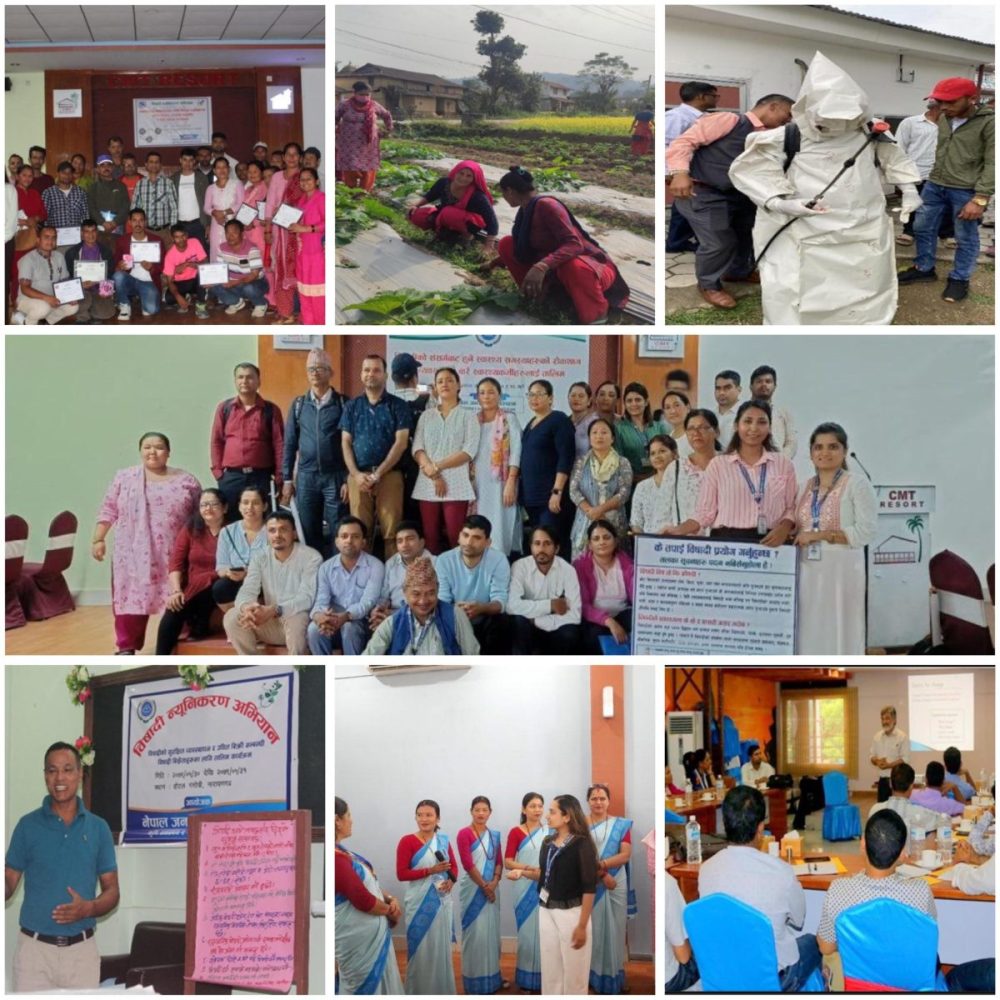
- Training to Farmers
- Training to Commercial Farmers
- Training to Pesticide Spray Workers
- Training to Pesticide Retailers
- Training to School Teachers
- Training to Frontline Health Workers
- Training to FCHVs
-
Training to Farmers
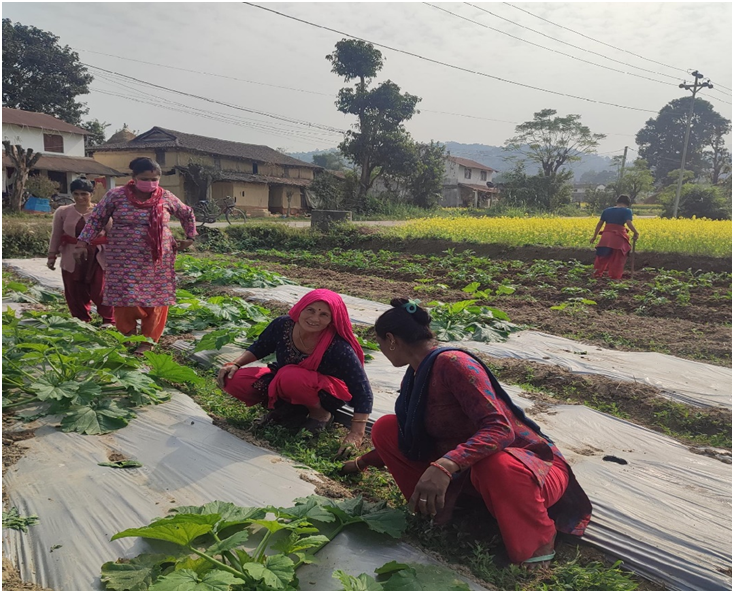
FHEN views Integrated Pest Management-Farmer Field School (IPM-FFS) training as a potent method for empowering farmers to explore alternative strategies to chemical pesticides. The training encompasses theoretical sessions, practical demonstrations, and field exercises. In Chitwan District, FHEN successfully organized 18-22 weeks of IPM-FFS at seven municipalities attracting approximately 200 farmers who actively participated in the entire course.
Training to Commercial Farmers
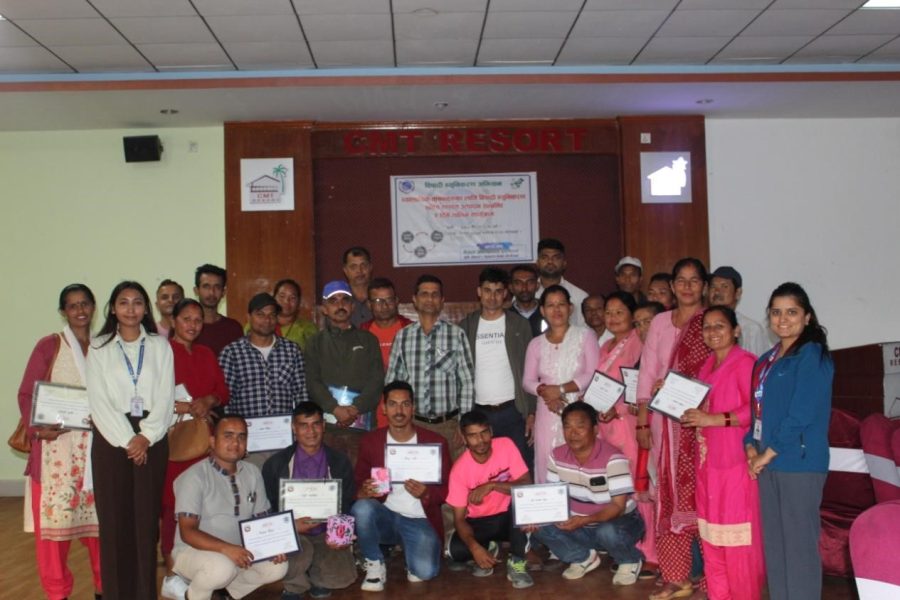
FHEN conducts a two-day commercial farmers training program, designed to equip participants with essential knowledge and skills for pesticide minimization and healthy production practices. This training is designed to cater to the needs of farmers who operate in a commercial setting and are looking to improve their production practices. The training aims to enhance farmers’ capacity in selecting safe pesticides, promoting IPM practices, safe handling of pesticides. With a goal to reduce pesticide exposure, the program encourages the use of personal protective equipment (PPE). In total, 76 farmers have undergone training across three sessions.
Training to pesticide spray workers
Pesticide spray workers, employed on a daily wage basis in local farms, are at risk population due to their consistent and prolonged exposure to pesticides, coupled with limited education and socio-economic challenges.
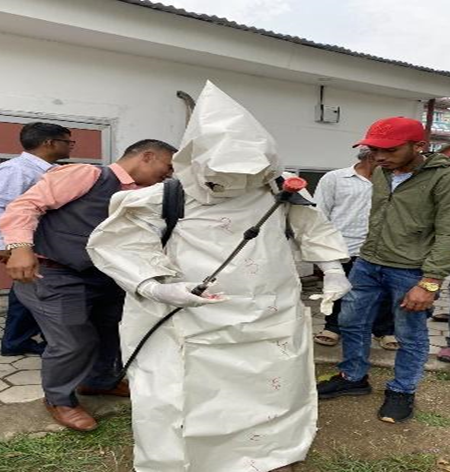
The project aims to empower Pesticide spray workers by imparting knowledge on the safe handling of pesticides, accompanied by the provision of personal protective equipment. So far, 137 sprayers have received training across three sessions, encompassing various municipalities in Chitwan District.
Training to Pesticide Retailers
The aim of FHEN’s initiative is to elevate the knowledge, skills, and practices of authorized pesticide retailers in the safe handling of chemical pesticides.
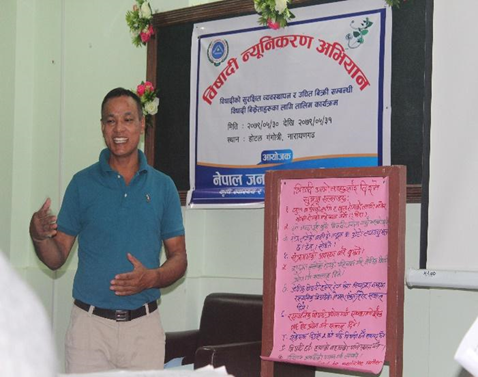
The training also focuses on reducing pesticide exposure and promoting the use of personal protective equipment (PPE) during pesticide formulation and mixing, with the ultimate goal of influencing buyers towards responsible pesticide use. This comprehensive training program has been conducted three times, benefiting a total of 78 pesticide retailer.
Training to school teachers
FHEN conducted a training program for school teachers with the aim of enhancing their knowledge about pesticide issues and safe handling practices. The training is to motivate teachers to actively engage in driving a pesticide minimization movement within their schools and communities through the involvement of students in creating awareness and promoting responsible pesticide use in educational settings and beyond.
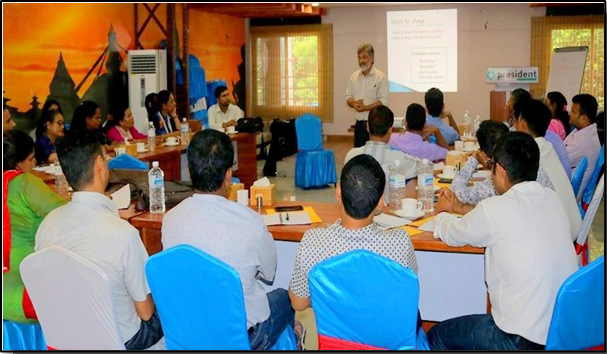
Training to frontline health workers
It is crucial for health workers to be informed and proficient in recognizing, handling, and preventing pesticide exposure, including acute poisoning. FHEN’s focus on health workers is intended to raise their awareness of the issue and highlight their vital role in counseling patients and consumers on safe pesticide handling.
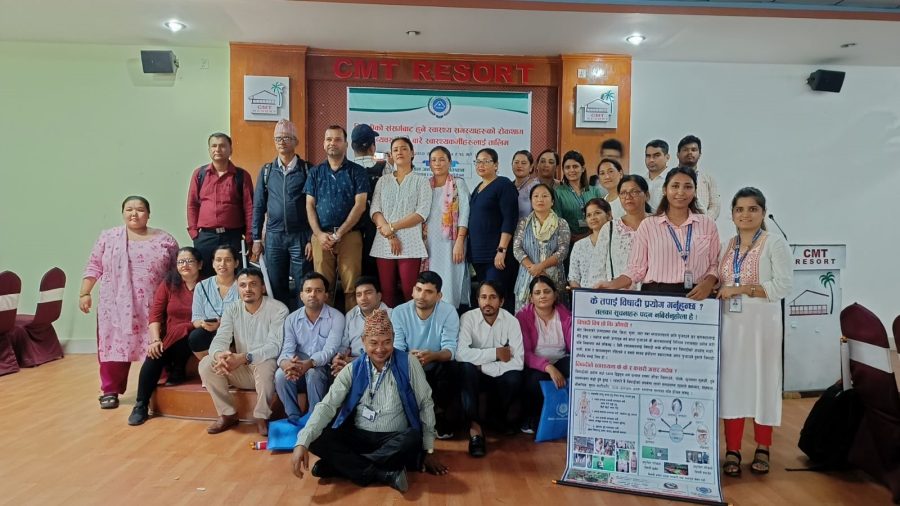
The primary objective of the training is to enhance the knowledge and skills of health workers regarding pesticides, focusing on improving their abilities in history-taking, comprehensive treatment and management of pesticide poisoning cases, patient counseling, record-keeping, and appropriate referral. Altogether, 84 health workers have been trained.
Training to FCHVs
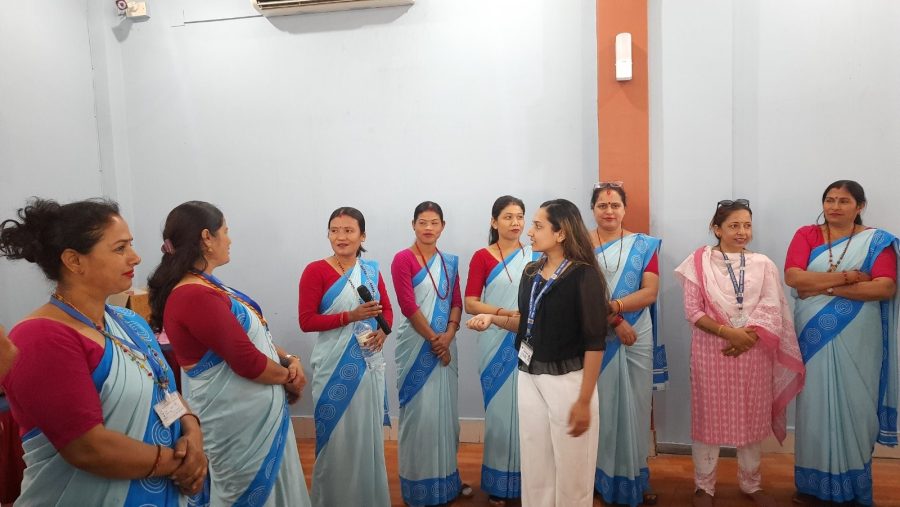
Female Community Health Volunteers (FCHVs) play a crucial role in Nepal’s healthcare system, especially in remote areas. They are the primary connection for communities, particularly women and children, contributing significantly to overall health improvement. FHEN conducted three training program with the goal of equipping FCHVs with comprehensive knowledge on preventing and managing health issues related to pesticide exposure. The objectives include enhancing their understanding of pesticides, labels, types, and alternatives, as well as upgrading their skills for effective counseling and health education within communities.
